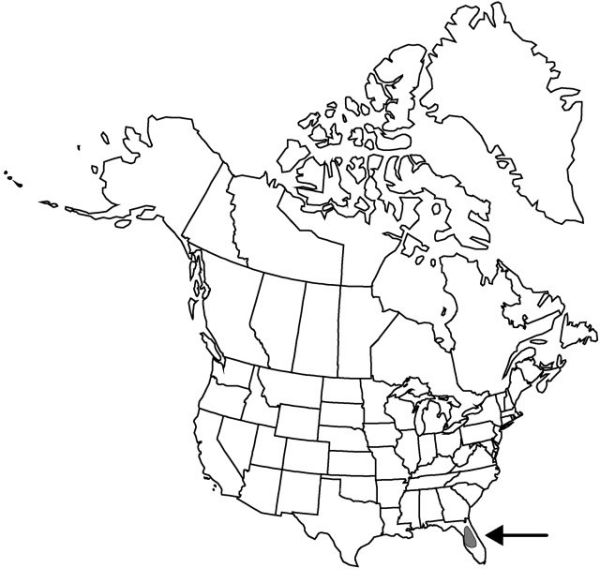Nolina brittoniana
Bull. Torrey Bot. Club 22: 158. 1895.
Plants acaulescent, cespitose; rosettes from bulblike bases, with vertical, subterranean caudices. Leaf blades lax, grasslike, flattened, 70–100 cm × 5–9(–11) mm, not glaucous; margins serrulate, with close-set, cartilaginous teeth; inflorescence leaf blades reduced, 4–35 cm. Scape 7–12 dm. Inflorescences paniculate, 5–10.5 × 0.7–1.5 dm; bracts caducous, 1.2–4 cm; bractlets white to tan, 2–4 mm. Flowers: tepals 1.7–2.5 mm; fertile stamens: anthers 0.7–1.2 mm; pedicel recurved in age, proximal to joint 1.5–3.5 mm, distal to joint 6–10 mm. Capsules symmetrical, broadly winged, 7.2–9 × 8–10(–12) mm, distinctly notched basally and apically. Seeds loosely invested in capsules, rounded, 3.4–4.8 × 2.6–3.3 mm.
Phenology: Flowering early spring.
Habitat: Sandy soil in oak and pine scrublands
Elevation: 0–30 m
Discussion
Of conservation concern.
Nolina brittoniana is fire-tolerant and is probably fire-dependant. It is restricted to central Florida in Marion, Lake, Orange, Hernando, Polk, Osceola, and Highlands counties. The plants are rare and listed as endangered by Florida and the U.S. Fish and Wildlife Service under the Federal Endangered Species Act.
Selected References
None.
